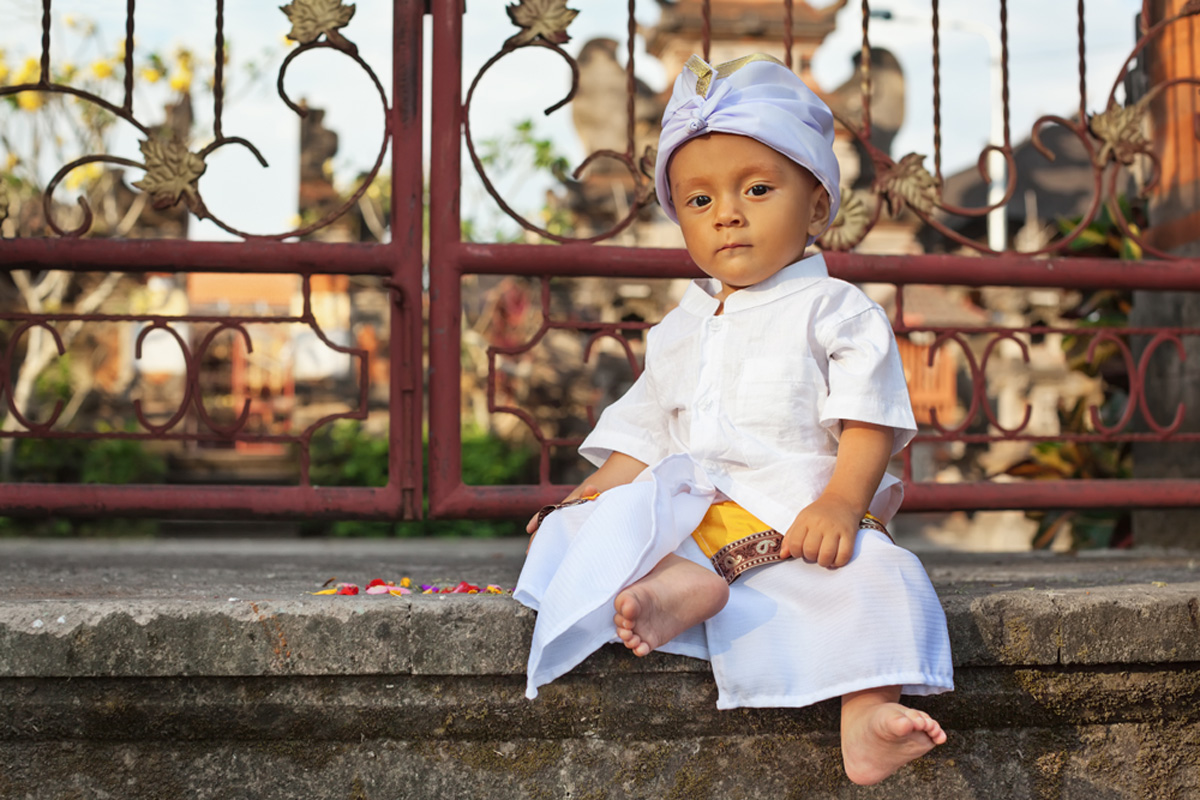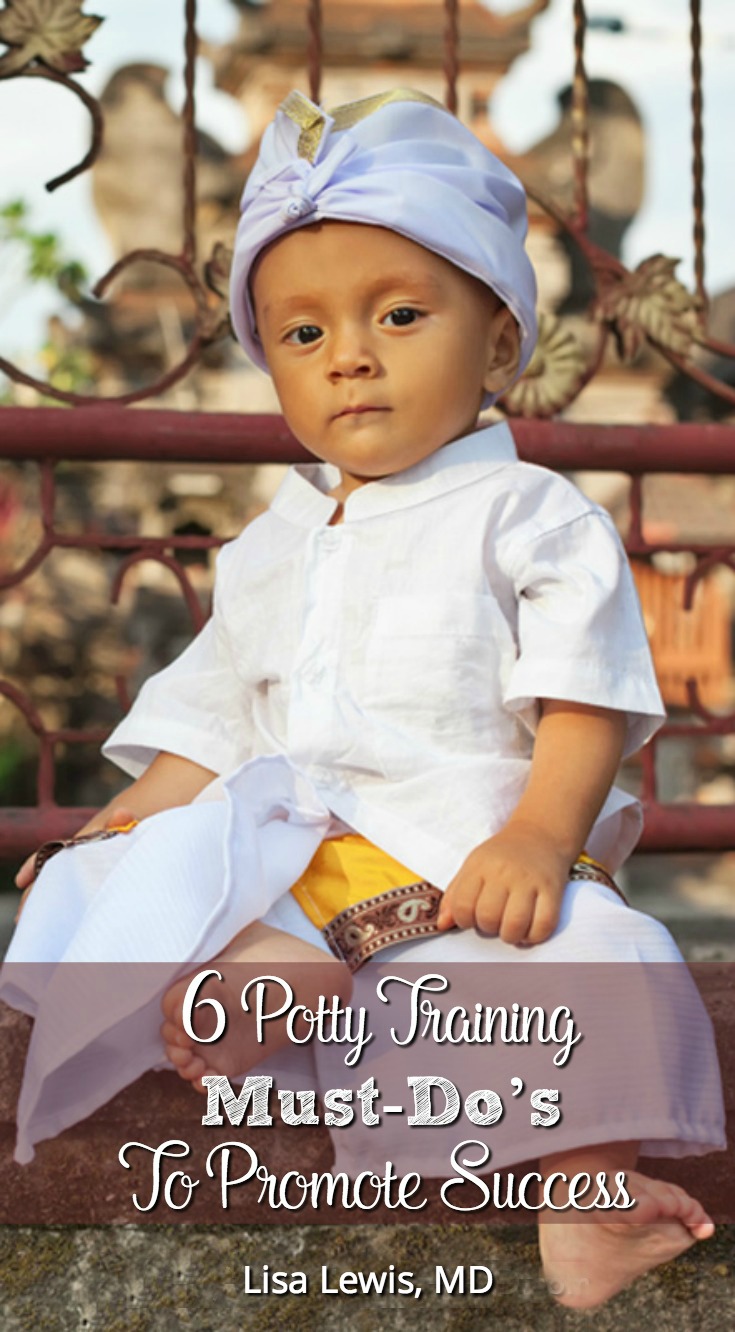6 Potty Training Steps To Promote Success
Potty training your child should begin, in earnest, no earlier than the age of two. Although many children may urinate or have a bowel movement in the potty before then, typically their interest lags in time and the phenomenon does not stick until after their second birthday.
There is much societal pressure to potty train at the age of two, but some children do not successfully train until the age of three or older. Others may even wait until the age of four; this is not as common, and may indicate a medical condition or overall resistance to potty training.
Here are some tips that will be helpful to get your toddler off to a good start for a positive potty training experience.
Start discussing the potty at age 18 months and beyond.
As you hear stories from different parents on how they potty trained their child, you will hear many different techniques (as well as some “do’s” and “don’ts”; perhaps from well-meaning relatives). To start, at around the age 18 months of age, discuss bowel and bladder habits with your child. Openly discuss the potty topic in your child’s presence. Point out when others go to the potty in front of your child, whether it’s a playmate who is over for a visit and takes a potty break, or an adult who needs to momentarily excuse herself from the dinner table. Have a small potty around the house for your child to get used to. Allow him to crawl or climb on the potty if he would like. The timespan between 18 months and 2 years should be a period of learning and discussion. At this age, if your child decides to go to the potty, allow him to, but do not consistently prompt him.
Start prompting potty training at age 2, only if your child is ready.
At some point, your child will tell you regularly before, during or after peeing or pooping in her diaper. This is a signal that she is getting ready to learn to go in the potty. At this age and readiness level, she should be able to follow simple instructions; continue to discuss going in the potty in a positive way. Ensure your toddler has clothing (pants, shorts, etc.) that is easy to take off and put back on. Make a routine that prompts her to get on the potty at least four times per day. Have a fun activity for enjoyment while she sits on the potty, such as a book or favorite toy to play with.
The best time to have your toddler sit on the potty is after meals, or if you notice she is signaling that she “needs to go.” A signal could be squirming, holding the genital area, or starting to squat to poop. These signals indicate you must get her to the potty as quickly as possible. Each time, you will want to have a phrase you say or song you sing to let her know you are prompting her. By doing so, she knows she is going to the potty, and it’s not a surprise. You can have her sit and do an activity at this time. Tell her that she can go ahead and “pee pee” or “poo poo” (choose simple potty terms: tee tee, poop, etc., but be consistent) if she would like. Just know that it will be her choice when she decides to go. Do not reprimand her if she chooses to go in the diaper instead of the potty. If she is sitting on the potty at least four times per day, eventually, she may even “accidentally” go to the potty. If this happens, give a lot of praise. You may choose to give a sticker or reward for going to the potty.
Fiber and water connection
Ensure your child gets plenty of fiber and drinks plenty of water. It is common for toddlers to withhold their bowel movements in order to avoid the potty. If he is constipated, it is harder to pass a bowel movement. He has to learn to use his abdominal muscles effectively to have a bowel movement on the potty. Extra fiber and water in the diet will help any child pass a bowel movement with ease.
Stay positive — accidents happen.
Once you notice your child is going to the potty consistently, you can also expect accidents. This is not deliberate, since sometimes the child doesn’t totally empty his bladder or may not go when his body is ready. Other times, he simply needs to go potty and can’t make it. Again, never discipline your child for having a potty accident. Be patient when (not if) those accidents occur. To avoid them, have regular bathroom trips. Keep an extra set of clothes handy to change into for those times. Additionally, reinforcing how nice it feels to be dry is helpful to motivate a child to potty train.
Got any kids around? Peer learning rocks.
In Germany, children run around and hang out in the nude while potty training. Now how's that for peer training? This came straight from a German Mom's mouth. The biggest tip I can give is preschool or day care “training.” It is amazing to see children learning to potty from other children. Many parents will tell you their oldest child was the hardest to potty train. When other siblings came along, the younger wants to imitate their elder sibling. This is their enjoyment–watching another child and learning the activity. Don’t despair if you don’t have another child. Find one! Or more than one! If your child is in day care or preschool, enlist the help of the workers to include your child in those group trips to the bathroom. Hands down, the easiest way to train a child is by providing engagement with another child.
Don't force your child if potty training rejection occurs.
If your child becomes consistently resistant to sitting on the potty, do not force her. Stop prompting potty training for approximately two months. During the “time off,” do not drop the subject. Talk about going to the potty: “Look, Mommy potties, Daddy potties…” Give examples of people who also potty; without asking her to potty. Consider toddler appropriate books from the library or bookstore to read together about the subject, so that she can understand the concept. By doing so, you are continuing to let her know that going potty is a positive activity, while allowing her to forget she resisted the potty. Then, start cueing her again when she seems interested. You can start a different style. Here's another idea from Germany: the potty moves around the house with the to-be-trained child. The child may sit diaper less while doing activities. When nature calls, praise is abundant. Try it.


